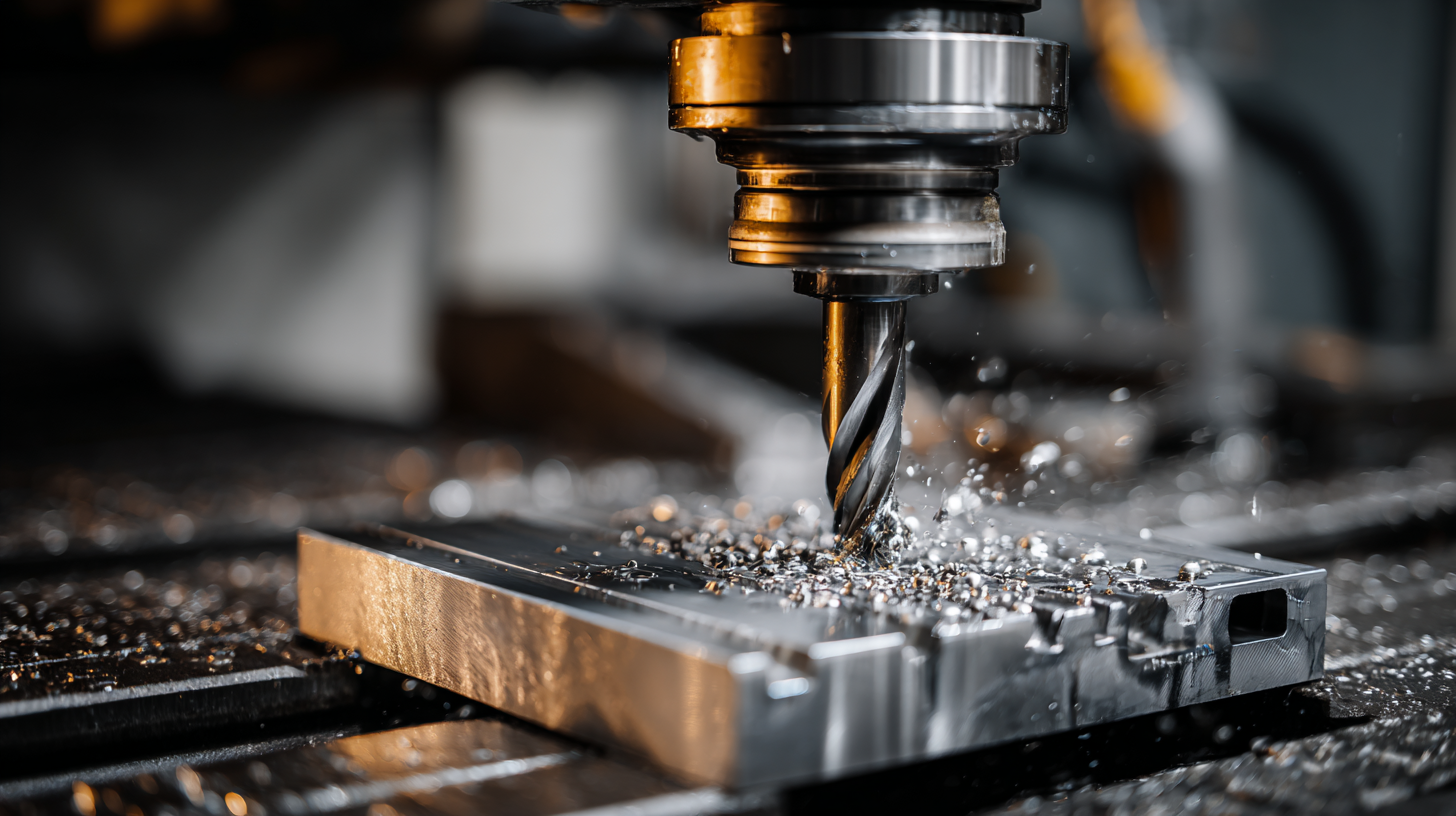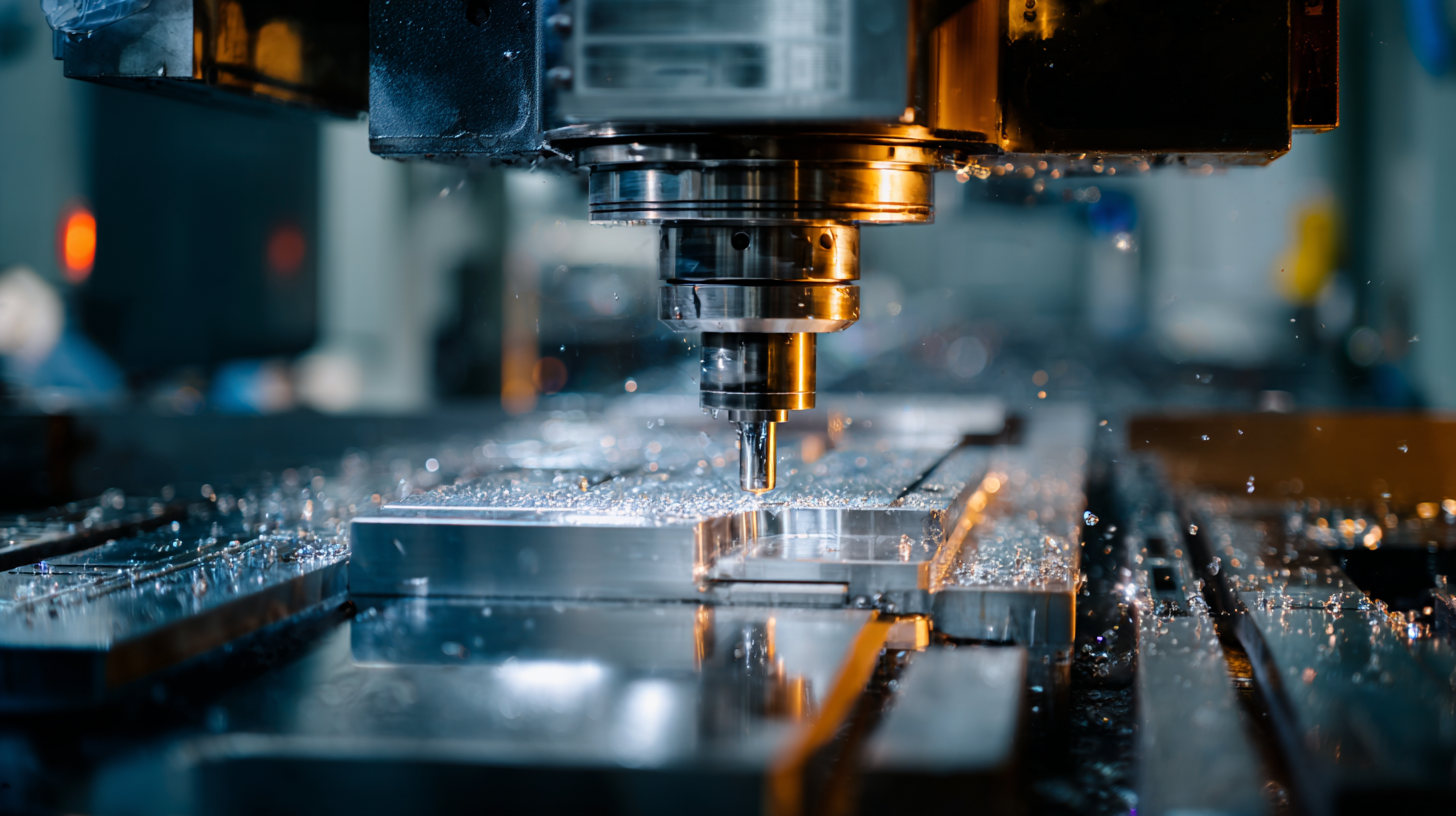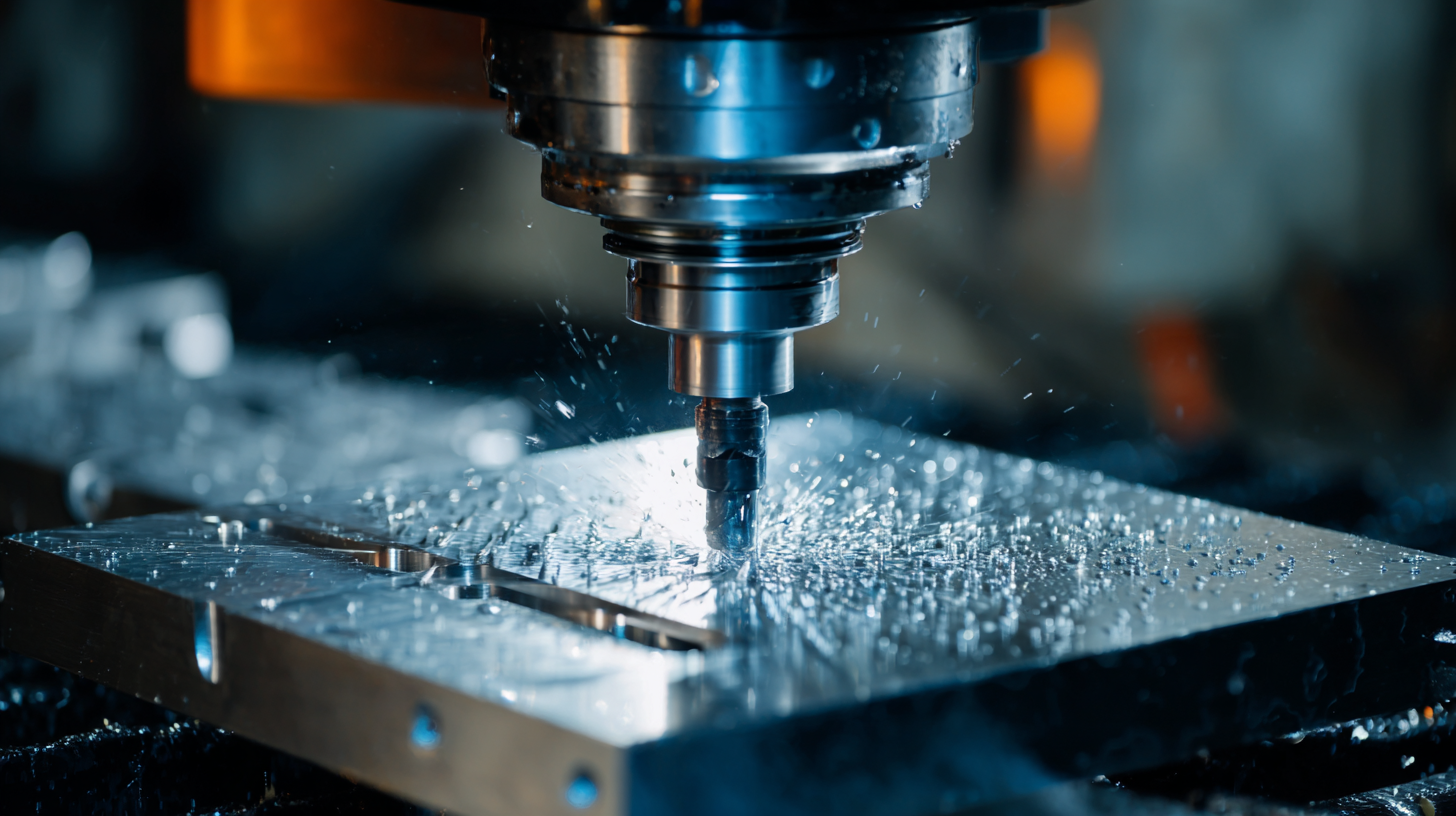What Makes Metal CNC Machines Essential for Modern Manufacturing
In today's fast-paced manufacturing landscape, the role of metal CNC machines has become increasingly vital. As reported by the MarketsandMarkets research, the global CNC machine market is projected to reach $100.14 billion by 2026, growing at a CAGR of 6.2%. This growth can be largely attributed to the efficiency, precision, and automation capabilities that metal CNC machines offer, allowing manufacturers to enhance productivity while reducing waste. Furthermore, according to the International Federation of Robotics, over 400,000 industrial robots were sold worldwide in 2020, a significant portion of which were integrated into CNC machining processes. As industries shift towards advanced manufacturing technologies, understanding what makes metal CNC machines essential is crucial for businesses aiming to remain competitive and meet the increasing demands for customized, high-quality metal parts.

The Role of Metal CNC Machines in Enhancing Precision and Accuracy in Production
Metal CNC machines play a pivotal role in enhancing precision and accuracy in modern manufacturing. As the global CNC metal-cutting machine market is projected to grow from USD 96.38 billion in 2024 to an estimated USD 156 billion by 2033, it's evident that the demand for precision-driven processes is on the rise. These machines not only improve the speed of production but also ensure that parts are manufactured to exact specifications, reducing waste and increasing overall efficiency.
Employing the latest advancements in artificial intelligence, next-gen CNC machining is set to revolutionize traditional manufacturing paradigms. AI integration will enable these machines to optimize settings in real-time, allowing for higher accuracy and consistency in production. According to market research, the CNC machine tools market is expected to hit USD 141.61 billion, fueled by the surge in manufacturing automation and precision demands.
Tip: When integrating CNC machines into your production processes, consider investing in automated systems that coordinate various equipment. This enhances operational efficiency and precision in machining tasks.
Tip: Regular maintenance and calibration of CNC machines are crucial in maintaining their precision and longevity. Implementing a robust maintenance schedule will minimize downtime and improve production quality significantly.
Key Industry Statistics Demonstrating the Growth of CNC Machining in Manufacturing
The CNC machining industry is witnessing significant growth, underscoring its vital role in modern manufacturing. Recent forecasts predict that the global CNC machine market will expand from $101.22 billion in 2025 to a staggering $195.59 billion by 2032, highlighting a compound annual growth rate (CAGR) of 9.9%. This remarkable growth trend is not just limited to CNC machines but extends to CNC machining centers as well, particularly in sectors such as aerospace and automotive, where precision and efficiency are paramount.
China's emphasis on high-quality economic development and industrial transformation further propels the CNC sector. The shift from "Made in China" to "Created in China" signifies an increasing reliance on advanced technologies, pushing traditional manufacturing to modernize with CNC solutions. The substantial year-on-year growth in industrial output correlates with the rising demand for technologically advanced manufacturing processes, making CNC machines not just desirable, but essential for staying competitive in a rapidly evolving market.
Comparative Analysis: CNC vs. Traditional Manufacturing Methods
The transition from traditional manufacturing methods to CNC (Computer Numerical Control) machining has revolutionized the industry. Traditional methods often involve manual operation, which can lead to inconsistencies and longer production times. In contrast, CNC machines automate the manufacturing process, allowing for increased precision and efficiency. A report from MarketsandMarkets indicates that the global CNC machine market is projected to grow from $63.46 billion in 2020 to $100.33 billion by 2026, underscoring the industry's shift towards automated solutions.
When comparing CNC to traditional methods, one key advantage of CNC machining is its ability to produce complex geometries with ease. Traditional machining often requires multiple setups and skilled labor, while CNC machines can be programmed once to execute a series of operations, drastically reducing time and costs. According to a study by the Society of Manufacturing Engineers, CNC machining can reduce production time by up to 30% compared to conventional methods.
**Tips:** To maximize the benefits of CNC machining, consider investing in training programs for your staff. A well-trained operator can enhance the machine's capabilities and ensure optimal performance. Additionally, regularly evaluating and upgrading your CNC machinery can keep your operations competitive and efficient in a fast-evolving manufacturing landscape. By leveraging advanced CNC technology, manufacturers can not only improve productivity but also maintain a high level of quality control in their products.

The Impact of CNC Machines on Reducing Operational Costs and Material Waste
In the world of modern manufacturing, CNC (Computer Numerical Control) machines have emerged as pivotal tools, significantly impacting production efficiency. One of the most notable benefits of these machines is their ability to drastically reduce operational costs. By automating complex machining processes, CNC machines minimize the need for manual labor, which not only leads to lower labor expenses but also reduces the likelihood of human error. This precision ensures that production runs smoothly, eliminating costly mistakes that can arise from traditional machining methods.
Moreover, CNC machines play a critical role in minimizing material waste, a major concern in manufacturing. Traditional cutting methods often result in excessive scrap material due to imprecise cuts and inaccuracies. In contrast, CNC technology employs sophisticated programming that optimizes cutting paths and utilizes materials more efficiently. This enhancement in precision means that manufacturers can produce more from less, contributing to both financial savings and a more sustainable production model. As industries strive for greater efficiency, the adoption of CNC machines is becoming an essential strategy to enhance productivity while maintaining environmental responsibility.
What Makes Metal CNC Machines Essential for Modern Manufacturing - The Impact of CNC Machines on Reducing Operational Costs and Material Waste
| Parameter | Value | Impact Description |
|---|---|---|
| Reduction in Material Waste | 30% | CNC machines allow for precise cuts, minimizing excess material. |
| Operational Cost Reduction | 25% | Automation decreases labor costs and increases efficiency. |
| Production Time Savings | 40% | Faster machining processes mean quicker turnaround on projects. |
| Energy Consumption Reduction | 20% | More efficient machinery uses less energy overall. |
| Product Consistency | High | CNC machines provide uniform quality across production runs. |
Future Trends in CNC Technology Shaping the Future of Metal Manufacturing
The evolution of CNC technology is dramatically reshaping the landscape of metal manufacturing. As industries adopt advanced digital manufacturing technologies, productivity is seeing a remarkable boost. The integration of artificial intelligence (AI) is particularly noteworthy, as it enables precision manufacturing and enhances operational efficiency. The ongoing trends towards automation and smart manufacturing ensure that CNC machines are not just tools of production but pivotal actors in the digital ecosystem of modern industry.

Looking ahead, several innovations are emerging in industrial machine design that promise to further transform metal manufacturing. The trend towards modularity allows for more flexible and customizable production systems, enabling manufacturers to swiftly adapt to changing production needs. Moreover, 3D printing and additive manufacturing continue to gain traction, providing unprecedented capabilities for complex geometries and rapid prototyping. As we forecast the future of metal manufacturing, it is clear that the synergy between AI, modular design, and advanced manufacturing technologies will define the next generation of production capabilities.
Related Posts
-

Common Challenges Faced by Global Buyers When Choosing Metal CNC Machines
-

10 Essential Tips for Optimizing Your CNC Metal Cutting Process
-

How to Choose the Right Laser Cutter for Your Business Needs
-

Understanding the Innovations Behind CNC Metal Cutting Techniques
-

The Definitive Ultimate Guide to Mastering CNC Cutting Techniques for Precision Fabrication
-

10 Ways Laser Machines Revolutionize Global Manufacturing Efficiency